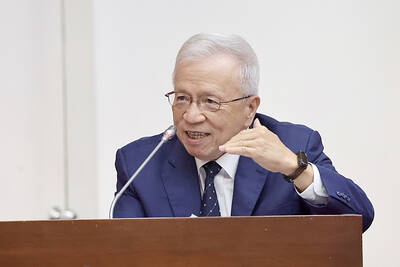Toyota Motor on Thursday recalled 2.3 million vehicles in the US to fix a problem with sticking accelerator pedals, the latest in a series of recalls by the world’s largest automaker.
The Japanese company’s US division said in a statement that the recall was to correct accelerator pedals on specific Toyota models that become worn and then in some cases get lodged in a partially depressed position.
The action was separate to an ongoing recall of about 4.2 million Toyota and Lexus vehicles that was begun last year due to a risk that loose floor mats could slip forward and jam the pedals, it said.
“In recent months, Toyota has investigated isolated reports of sticking accelerator pedal mechanisms in certain vehicles without the presence of floor mats,” Irv Miller, vice president of Toyota Motor Sales USA, said in a statement.
INVESTIGATION
“Our investigation indicates that there is a possibility that certain accelerator pedal mechanisms may, in rare instances, mechanically stick in a partially depressed position or return slowly to the idle position,” he added. “Consistent with our commitment to the safety of our cars and our customers, we have initiated this voluntary recall action.”
The models involved are the RAV4 2009 to 2010 (model year), Corolla (2009-2010), Matrix (2009-2010), Avalon (2005-2010), Camry (2007-2010), Highlander (2010), Tundra (2007-2010) and Sequoia (2008-2010).
The condition could happen when the accelerator pedal mechanism becomes worn, making it harder to depress, slower to return to idle “or, in the worst case, stuck in a partially depressed position,” the statement said.
It said drivers experiencing a sticking pedal could control the car with “firm and steady application of the brakes” — without pumping the pedal — and to then guide it to the nearest safe location.
LARGEST RECALL
Toyota, which overtook US rival GM in 2008 as the world’s largest automaker, issued its largest recall to date in early October to correct the separate floor mat problem.
It came after a California Highway Patrol officer and three members of his family were killed in a fiery crash when the accelerator pedal of their Lexus became entrapped in the floor mat.
Around 1.7 million Toyota vehicles are subject to both separate recall actions, the statement said.
Toyota’s US division has made a number of other recalls in the past year.
In November it announced the recall of 110,000 of its Toyota Tundra pick-up trucks in the US, amid concern over corrosion on the vehicle’s frame that could damage brake lines and cause the spare wheel to become loose.
In August, the company recalled some 95,700 cars in the US, saying icing in cold temperatures could impair the braking system.
Toyota is also facing a potential safety issue with its highest profile vehicle, the Prius, with a growing number of complaints that brakes on the 2010 model can malfunction unexpectedly.
The automaker says it has launched its own investigation.

JITTERS: Nexperia has a 20 percent market share for chips powering simpler features such as window controls, and changing supply chains could take years European carmakers are looking into ways to scratch components made with parts from China, spooked by deepening geopolitical spats playing out through chipmaker Nexperia BV and Beijing’s export controls on rare earths. To protect operations from trade ructions, several automakers are pushing major suppliers to find permanent alternatives to Chinese semiconductors, people familiar with the matter said. The industry is considering broader changes to its supply chain to adapt to shifting geopolitics, Europe’s main suppliers lobby CLEPA head Matthias Zink said. “We had some indications already — questions like: ‘How can you supply me without this dependency on China?’” Zink, who also

At least US$50 million for the freedom of an Emirati sheikh: That is the king’s ransom paid two weeks ago to militants linked to al-Qaeda who are pushing to topple the Malian government and impose Islamic law. Alongside a crippling fuel blockade, the Group for the Support of Islam and Muslims (JNIM) has made kidnapping wealthy foreigners for a ransom a pillar of its strategy of “economic jihad.” Its goal: Oust the junta, which has struggled to contain Mali’s decade-long insurgency since taking power following back-to-back coups in 2020 and 2021, by scaring away investors and paralyzing the west African country’s economy.

BUST FEARS: While a KMT legislator asked if an AI bubble could affect Taiwan, the DGBAS minister said the sector appears on track to continue growing The local property market has cooled down moderately following a series of credit control measures designed to contain speculation, the central bank said yesterday, while remaining tight-lipped about potential rule relaxations. Lawmakers in a meeting of the legislature’s Finance Committee voiced concerns to central bank officials that the credit control measures have adversely affected the government’s tax income and small and medium-sized property developers, with limited positive effects. Housing prices have been climbing since 2016, even when the central bank imposed its first set of control measures in 2020, Chinese Nationalist Party (KMT) Legislator Lo Ting-wei (羅廷瑋) said. “Since the second half of

AI BOOST: Next year, the cloud and networking product business is expected to remain a key revenue pillar for the company, Hon Hai chairman Young Liu said Manufacturing giant Hon Hai Precision Industry Co (鴻海精密) yesterday posted its best third-quarter profit in the company’s history, backed by strong demand for artificial intelligence (AI) servers. Net profit expanded 17 percent annually to NT$57.67 billion (US$1.86 billion) from NT$44.36 billion, the company said. On a quarterly basis, net profit soared 30 percent from NT$44.36 billion, it said. Hon Hai, which is Apple Inc’s primary iPhone assembler and makes servers powered by Nvidia Corp’s AI accelerators, said earnings per share expanded to NT$4.15 from NT$3.55 a year earlier and NT$3.19 in the second quarter. Gross margin improved to 6.35 percent,